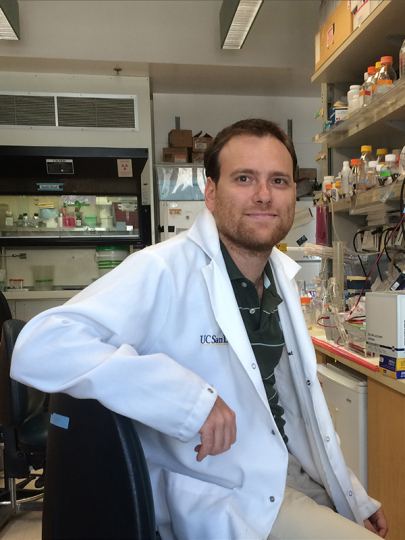Daniele FachinettiBiologie cellulaire et cancer - CNRS / Institut Curie
Mes recherches
I performed my PhD work with Marco Foiani (IFOM, Italy) where I identified for the first time the sites where DNA replication termination occurs, and how it is then achieved (Fachinetti et al., 2010). The study of replication fragile zones sparked my interest in centromeres, which led to my move in 2010 to the laboratory of Don W. Cleveland at the Ludwig Institute in the University of California, San Diego (UCSD). As post-doc, I have characterized a system for rapid protein degradation in human cells (Holland, Fachinetti et al., 2012) and I then combined genome-editing techniques to answer to two long-standing questions in genetics: the nature of the epigenetic mark of centromeres (Fachinetti et al., 2013; Fachinetti et al., 2017) and the role of centromeric DNA sequence in centromere function (Fachinetti et al., 2015). These findings open new routes of investigation necessary for our understanding of centromere establishment and function and overall the maintenance of genome stability.
I then started as a group leader at the “Department of cell biology and cancer” at the Institut Curie supported by the ATIP-AVENIR program in 2016.
My team is now studying what we think are the most pressing questions in chromosome biology: 1) Genetic and epigenetic mechanisms that control faithful transmission of our genetic material; 2) DNA architecture of certain chromosomal regions such as centromeres; 3) Identification of the key enzymes protecting the integrity of our genome. We use molecular and cell biology approaches combined with genetics, physics and biochemistry.
Mon projet ATIP-Avenir
Delivery of chromosomes to each daughter cell during cell division is mediated by the centromere. Determining how centromeres are established and maintained is fundamental for our understanding of how chromosome inheritance is achieved with high fidelity. Indeed, defects in centromere formation or function lead to chromosome mis-segregation and consequently to numerical or structural alteration, both common features of cancer cells. Using gene replacement in human cells, I have previously established that chromatin containing the centromere-specific histone H3 variant CENP-A is the epigenetic mark that acts through a two-step mechanism to identify, maintain and propagate centromere function indefinitely. In addition, I have recently demonstrated the existence of a previously uncharacterized component for kinetochore assembly, dependent on the centromeric DNA binding protein CENP-B. I will now test and extend this model of epigenetic centromere specification by, among others, exploiting the rapid, inducible, degron-mediated protein degradation approach. With this approach, I will determine the strength of individual centromeres and the importance of CENP-A for maintenance of centromere function. I will test the influence of DNA sequences and/or chromatin modifications for de novo CENP-A reloading onto chromatin and assess the correlation between neocentromere formation and chromosomal instability. Further, novel components and pathways necessary for faithful chromosome segregation will be examined. Finally, I will inspect the mechanisms required for the integrity of centromeric chromatin and the architecture of human centromeres, either in physiological conditions, or after disruption of the centromeric chromatin or DNA topology. In summary, my career objective is to focus on understanding the molecular mechanisms that regulate centromere formation, faithful chromosome distribution in mitosis and how these are linked to genome stability and human health and disease.
